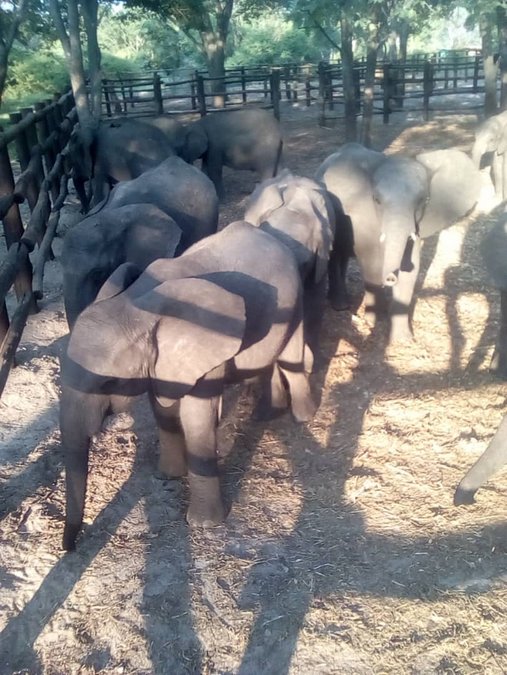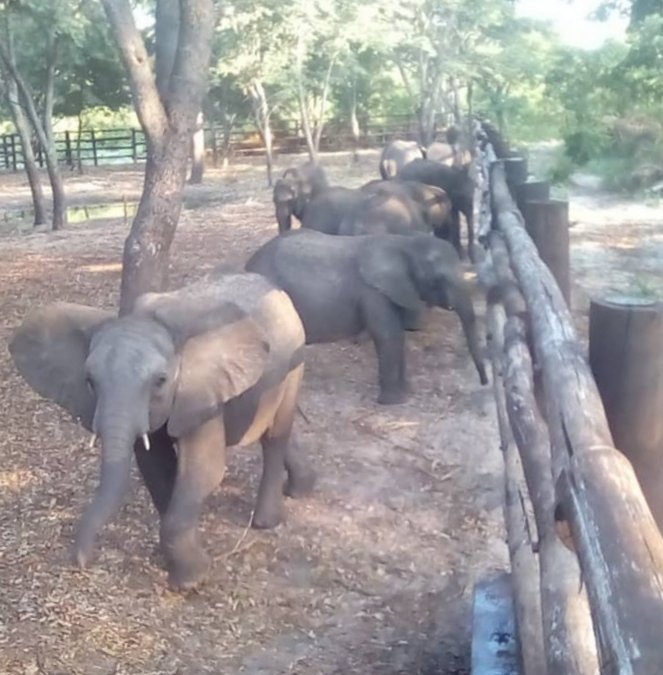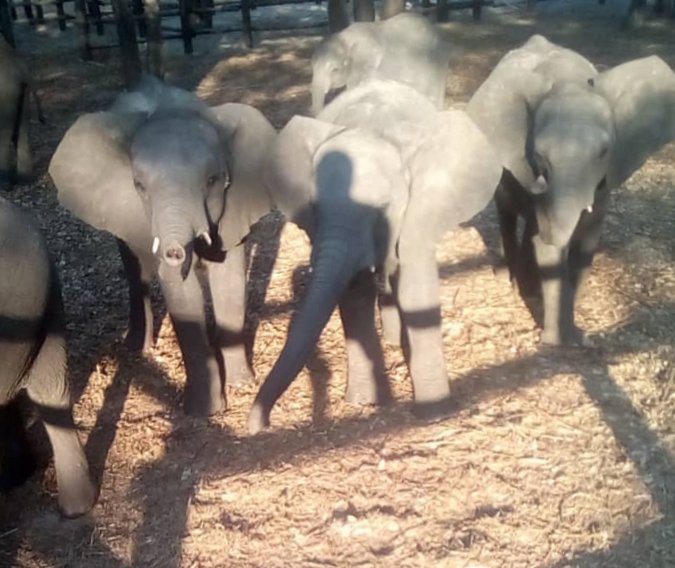
NEWS DESK POST by Humane Society International/Africa (HSI/Africa)
“With no adult females to look to for reassurance, guidance and learning, one can only imagine the youngsters’ distress. Zimbabwe continues to exploit its wildlife to the highest bidder with no meaningful oversight. Recognising elephants as sentient beings, South Africa has banned the capture of elephants from the wild for captivity. Zimbabwe must urgently follow suit to redeem itself.”
Elephant experts at Humane Society International/Africa have condemned Zimbabwe’s capture of 35 baby elephants, some as young as two years old, who have been stolen from their mothers and are awaiting export to foreign zoos. According to The Times of London, the young elephants are being held in pens in Hwange National Park while travel crates are prepared and the documents finalised for the detrimental 7,000-mile journey to China.
Footage provided to Humane Society International/Africa shows the youngsters frantically pacing around the Hwange pens, some showing signs of stress such as temporal streaming (dark streaks down the side of the face from the temporal gland) and others demonstrating wide-eyed, ear-splayed defensive postures.

Iris Ho, senior wildlife policy and programs specialist at Humane Society International, who attended the Summit, stated: “Ripping baby elephants from their mothers is morally indefensible and ethically reprehensible. We cannot agree more with the Honourable Balala and the African Elephant Coalition regarding the conservation and welfare concerns related to the deliberate capture of wild elephants for the purpose of holding them in permanent captivity outside their natural range.”
Based on the trade data of the Convention on International Trade in Endangered Species of Wild Fauna and Flora (CITES), since 2012 Zimbabwe has exported 108 young elephants to zoos in China despite opposition from other African countries, elephant experts and non-governmental organisations including the Humane Society of the United States and Humane Society International.

Audrey Delsink, Humane Society International/Africa’s wildlife director and an elephant biologist, said: “The capture of baby elephants from the wild is barbaric, and captivity will be a life sentence of suffering. Video footage shows that these young animals are already displaying stress behaviour after being ripped away from their mothers and bonded family groups, and are terrified. Calves normally remain closely bonded to their natal family groups; females never leave their families whilst males only leave the herd at 12-15 years of age.

The AEC’s press statement of the Summit called for an end to the export of wild elephants to zoos and other captive facilities. These positions are reflected in the proposals and documents submitted by the AEC to the 18th meeting of the CITES Conference of Parties which will take place this May in Sri Lanka.
In collaboration with the AEC, Humane Society International co-authored a report highlighting the challenges that the live trade in elephants poses to the CITES regulations.
WATCH: Exclusive footage by journalist Oscar Nkala of baby elephants captured from Hwange National Park in Zimbabwe for export to captive facilities in China in February 2019
Humane Society International (HSI) and its affiliates together constitute one of the world’s largest animal protection organisations. For more than 25 years, HSI has been working for the protection of all animals using science, advocacy, education and hands-on programs. Celebrating animals and confronting cruelty worldwide.
To comment on this story: Login (or sign up) to our app here - it's a troll-free safe place 🙂.![]()








